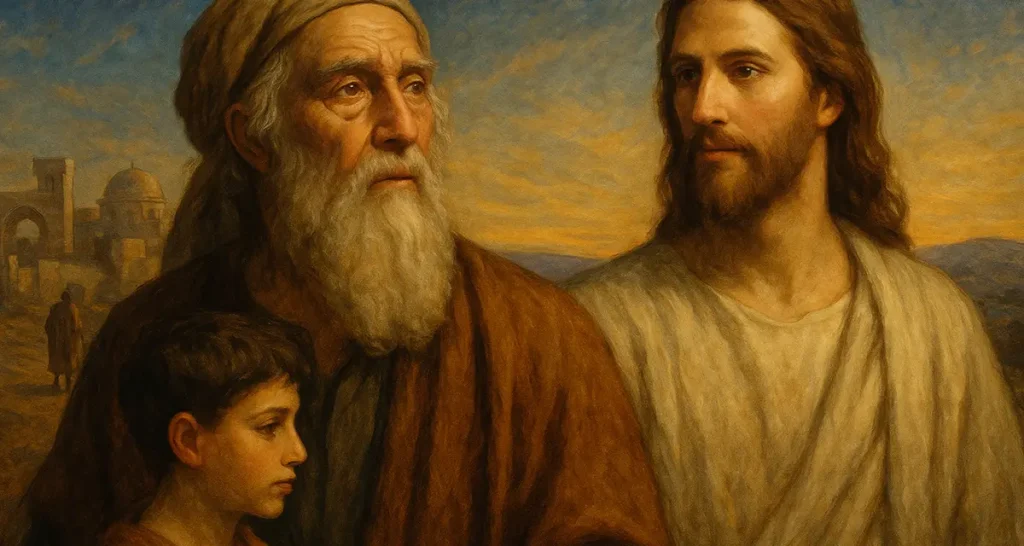Excellent observation—and a very thoughtful question. Let’s carefully unpack Genesis 17:18, where Abraham says:
“O that Ishmael might live before thee!” (KJV)
On the surface, it may sound like Abraham is doubting God’s new promise of a son through Sarah. But when read in context—and in light of Abraham’s journey of faith—this moment reveals something deeper than unbelief.
🌿 The Context (Genesis 17)
God has just made an astounding promise in verses 15–16:
“Sarah your wife shall bear you a son… I will bless her, and she shall be a mother of nations; kings of peoples shall come from her.”
Then in verse 17, Abraham laughs—not in mockery, but in astonishment:
“Shall a child be born to a man who is a hundred years old?”
And then:
“O that Ishmael might live before thee!”
So what is Abraham doing here?
🤔 Is This Doubt?
Not quite.
There is a difference between:
- Doubt that rejects God’s promise (as with unbelief), and
- A plea springing from love, concern, or a limited understanding.
Abraham believes God will give him a son through Sarah. But he’s also deeply attached to Ishmael, his son through Hagar. In this statement, Abraham is not saying, “Don’t give me a son through Sarah.” He’s saying:
“But what about Ishmael? Can he also be part of your blessing? May he not be excluded?”
This is not contradiction, but intercession.
🔥 God’s Response Confirms This
God doesn’t rebuke Abraham. Instead, He reassures him:
“As for Ishmael, I have heard you: I will bless him… But my covenant I will establish with Isaac.” (Genesis 17:20–21)
God honors Abraham’s concern and promises to bless Ishmael—but He makes it clear that the covenant line will pass through Isaac, the promised son.
🧠 Theological Insight
This moment beautifully reflects the tension between human attachment and divine promise:
- Abraham has walked with Ishmael for 13 years. He loves him.
- But God’s plan is larger: the covenant is based on God’s miraculous provision, not human effort (Ishmael being born of Hagar and Abraham’s initiative in Genesis 16).
So Abraham isn’t doubting that God can do it. He’s saying:
“Lord, I believe you… but please also show mercy to Ishmael.”
That’s not faithlessness—it’s faith and love coexisting, asking for mercy without resisting God’s new direction.
💬 Parallels in Scripture
Other faithful figures do the same:
- Moses pleads for Israel after the golden calf (Exodus 32).
- Paul wishes himself accursed for the sake of his people (Romans 9:3).
- Jesus weeps over Jerusalem (Luke 19:41).
Abraham’s words are best understood as a father’s intercession, not a skeptic’s refusal.
✅ Summary
“O that Ishmael might live before thee”
is not Abraham rejecting God’s promise, but a loving plea:
“Lord, I believe—just please don’t forget the son I already love.”
And God answers, not with rebuke, but with grace and clarity.


